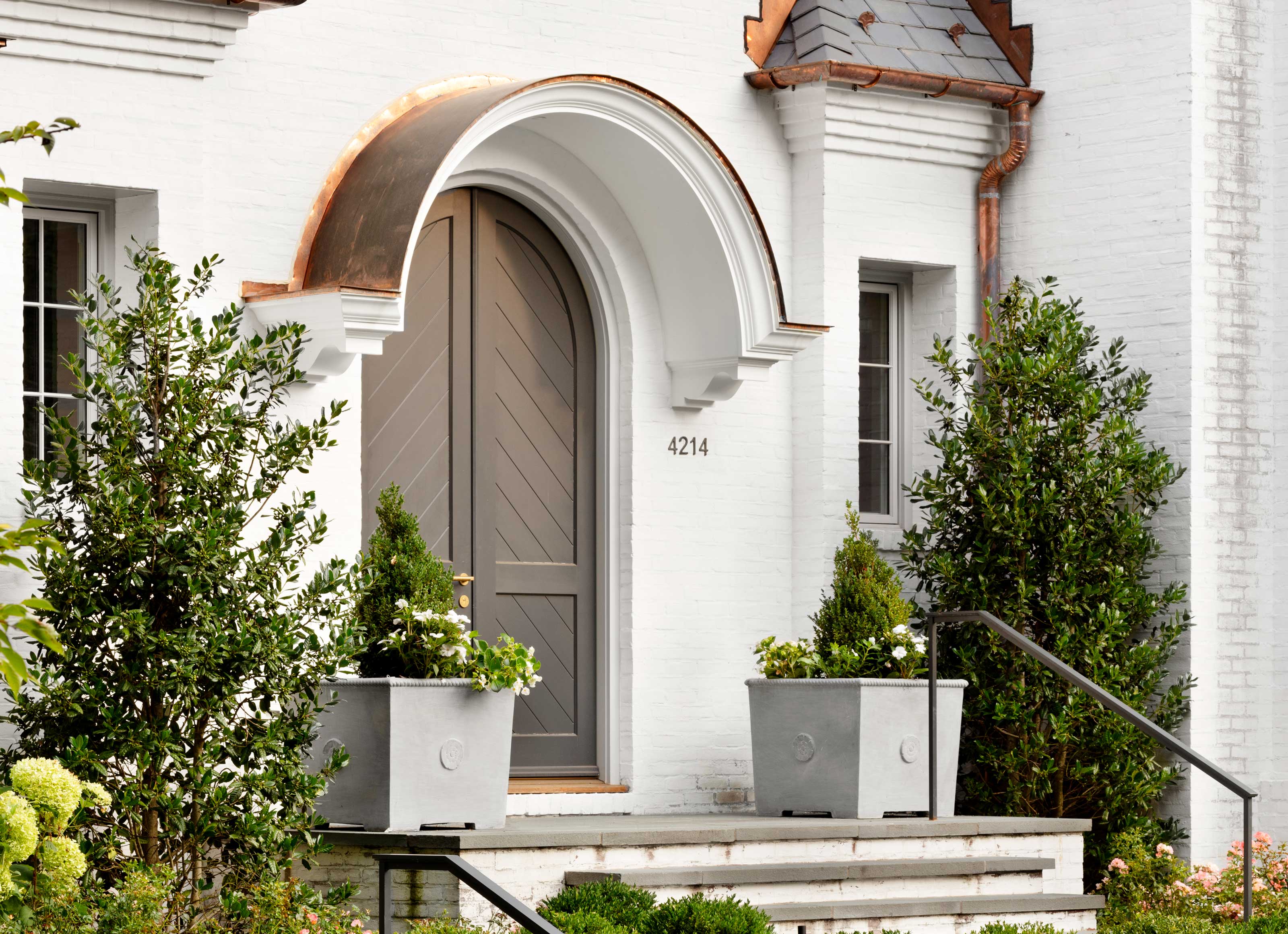
From lighting to paint color, gleaming hardware to perfect plants, how you design and accessorize your front door make a strong first impression. After all, t's the first thing guests are greeted by.
Your front door is actually something that's pretty easy to reinvent, even if you're not looking to change the door itself. A new color, a change of harware - it's all pretty low stakes, but these are changes that can really elevate your look.
So, embrace your front door design and upgrade for a luxe look that will be the envy of your neighbors. We speak to the experts and designers to find out how.
1. Illuminate your front door
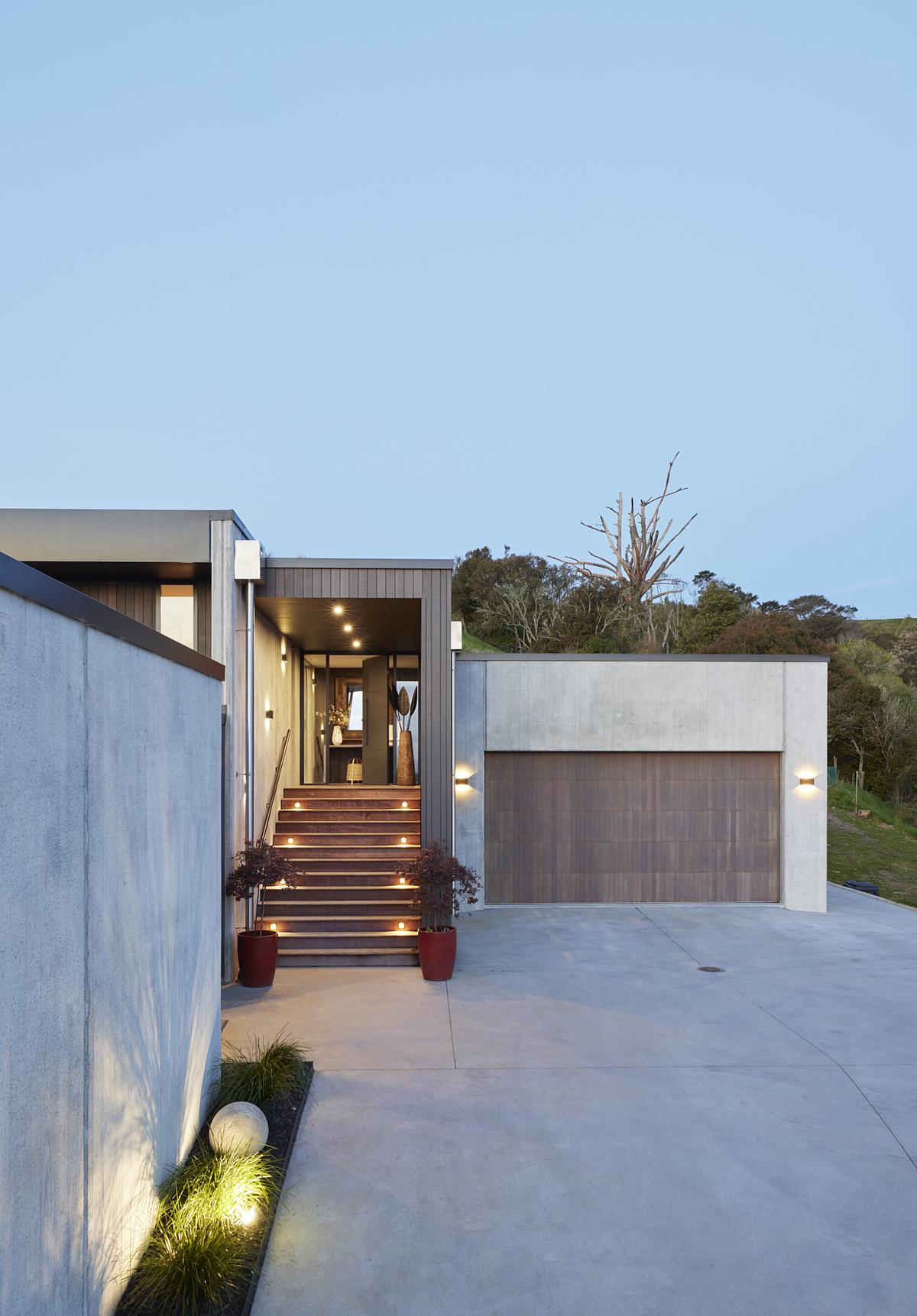
Just like with interiors, front door lighting is crucial. It can help illuminate architectural detailing and panels, create an impression of grandeur, and overall bring a luxe look. And your options for front door lighting are endless. From front door pendant lights that hang above the front door and mimic the classic style of an entryway, to a collection of lanterns on the doorstep that create a warming and cozy glow, embracing light will create a luxe first impression and usher guests into your home.
LED recessed lighting is a great addition to your front door. Taking up little space, recessed lights that sit embedded in the decking or flush on the floor help to uplight your home, shining a light on your front door below to emphasize texture and shadow in a dramatic way.
In this example in the middle of New Zealand countryside, there are a total of eight recessed step lights, three wall lights on the concrete wall and three on the canopy above, all helping to illuminate the front door and porch area in all its glory.
'The home is in a remote rural setting so outdoor lighting was essential, not only aesthetically but practically for people approaching the house,' says Lee Turner, of multi award-winning architectural practice, Turner Road Architecture.
'Square recessed LED lights were used on the step risers leading to the main entrance of the home to illuminate the stairs. Up/down LED lights were used to accentuate the patination of the vertical board formed concrete wall.
'Finally recessed LED lights in the canopy cast a warm glow to the entire entry enclosure which also spills through the random cut-outs in the Corten steel feature panel, creating an intriguing filtered light display on the concrete driveway below.
'They are turned on inside the entry foyer and set to sensor, so they turn on automatically when people approach the house.'
2. Think about color
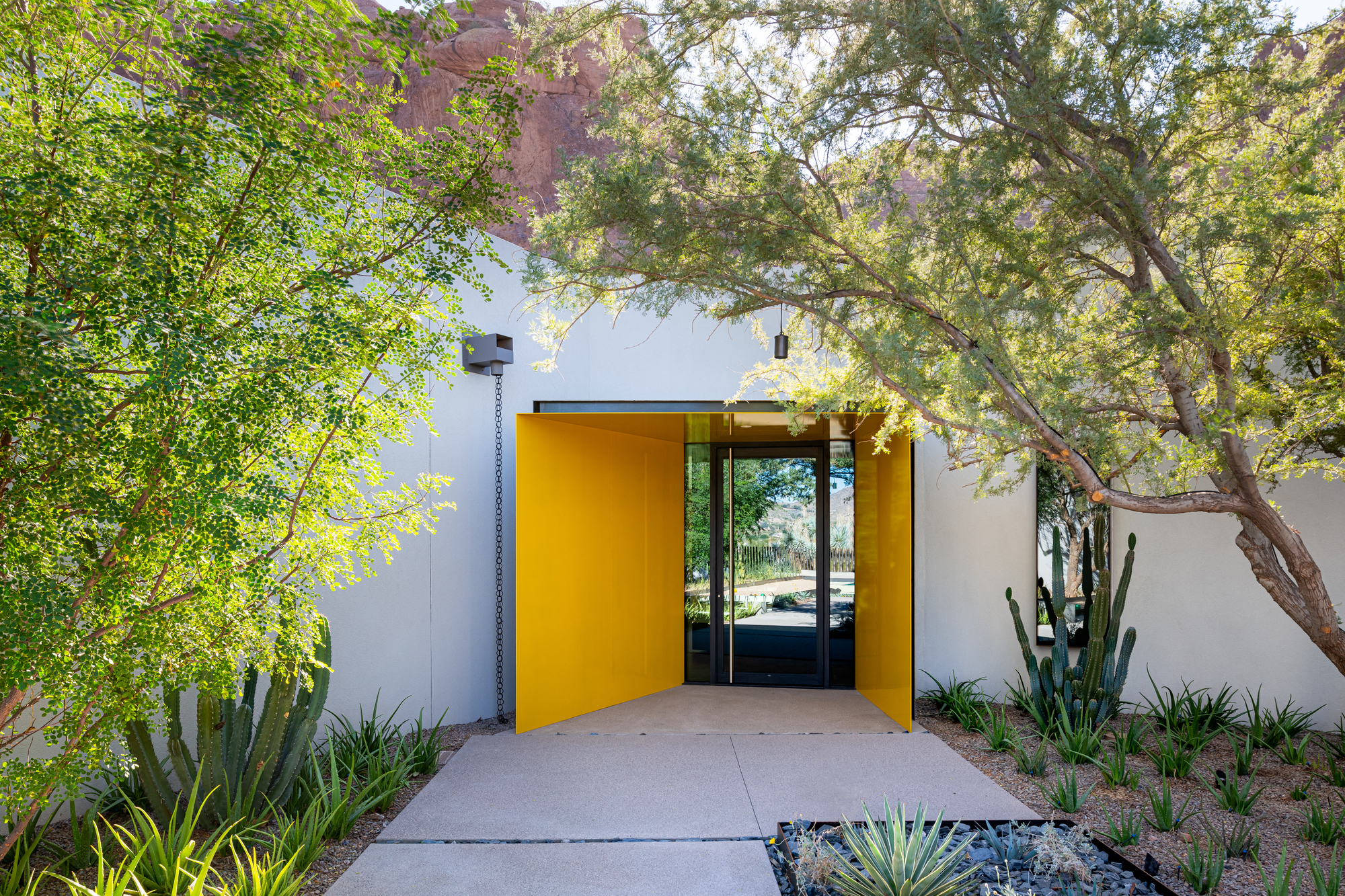
Choose your front door color carefully, the tone you pick can have real impact on first impressions and add value. We tend to think of sober colors when considering something that looks sophisticated or expensive, like dark greens and perennial blacks, but don’t overlook something unexpected too.
'For a smart and joyful look, try a sophisticated yellow, alternatively, the youthful burst of our verdant Yeabridge Green in Exterior Eggshell will echo rather beautifully with any exterior planting,' says Patrick O’Donnell, brand ambassador for Farrow & Ball.
'Elsewhere, rather than choosing a reliable black as your dark color of choice, consider an elegant deep brown as an option. Something like Tanner’s Brown will look reliably stylish and gives you great flexibility whether your house is stucco, red brick or stone.'
Think about the quality of paint too. A full gloss can bring a reflective quality to your front door and help smarten up a lacklustre doorstep.
When it comes to front door colors to avoid, nothing is out of bounds, just make sure it's the perfect combination and works for the surrounding brickwork, plants in your front yard and front door hardware.
3. Remember the architraves
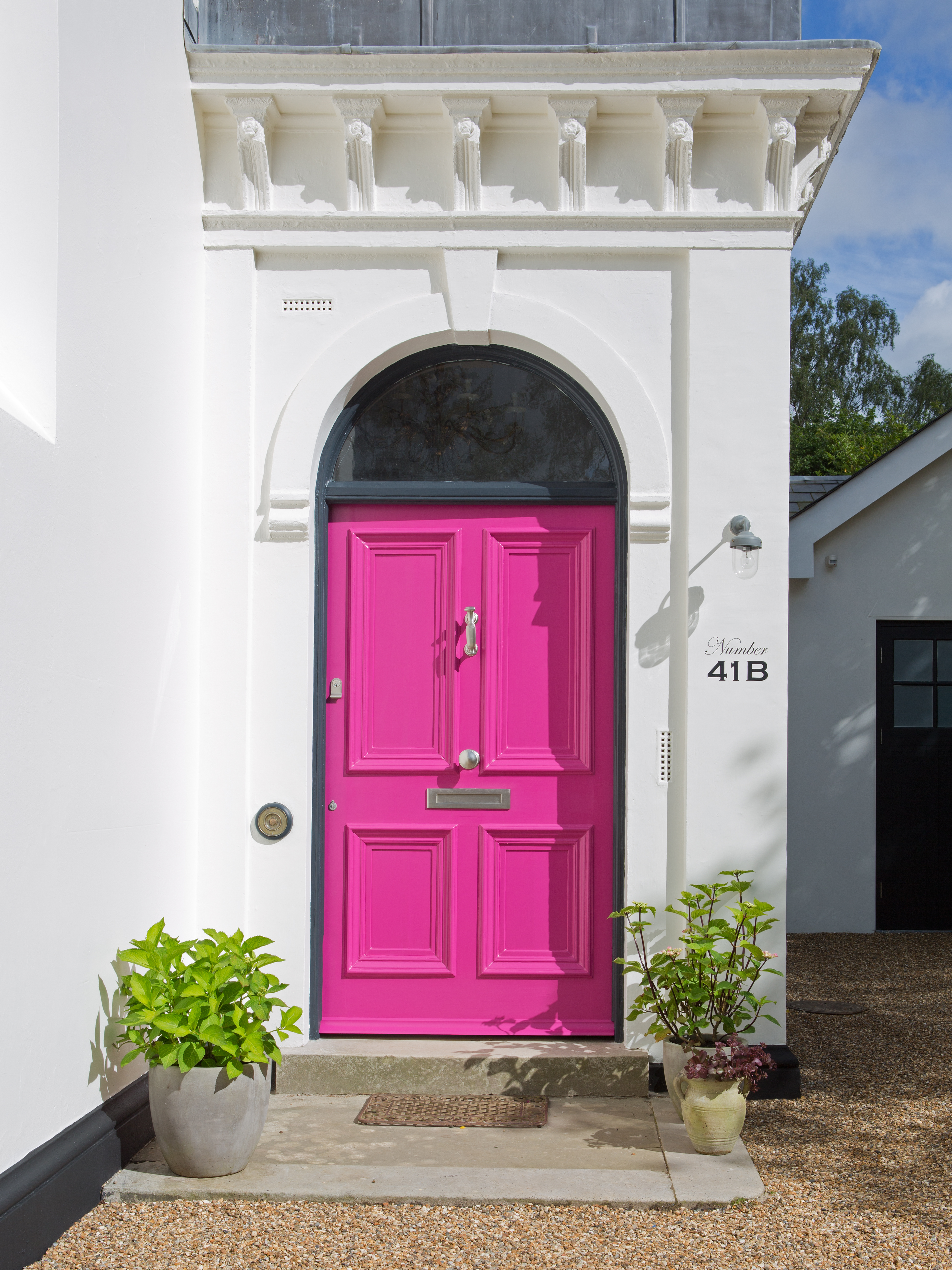
'One thing that will really help is to paint the architrave around the front door too,' says Patrick. 'Do this, rather than leaving it white - which so many of us do!'
Painting the architraves is much like your interior trim. It often gets forgotten about, but this paint idea can make such a difference.
For your front door, freshly painted architraves can help things feel a bit fresher and neater, 'it also helps give a better proportion to the scale of your door,' says Patrick.
You don't always have to go for a bright high gloss white either, going the same color as the door itself creates a feeling of depth and drama. Alternatively, pick a color from the opposing side of the color wheel to your front door and go more muted, the color combination will be subtle, unexpected, but add much-needed interest.
4. Upgrade your hardware
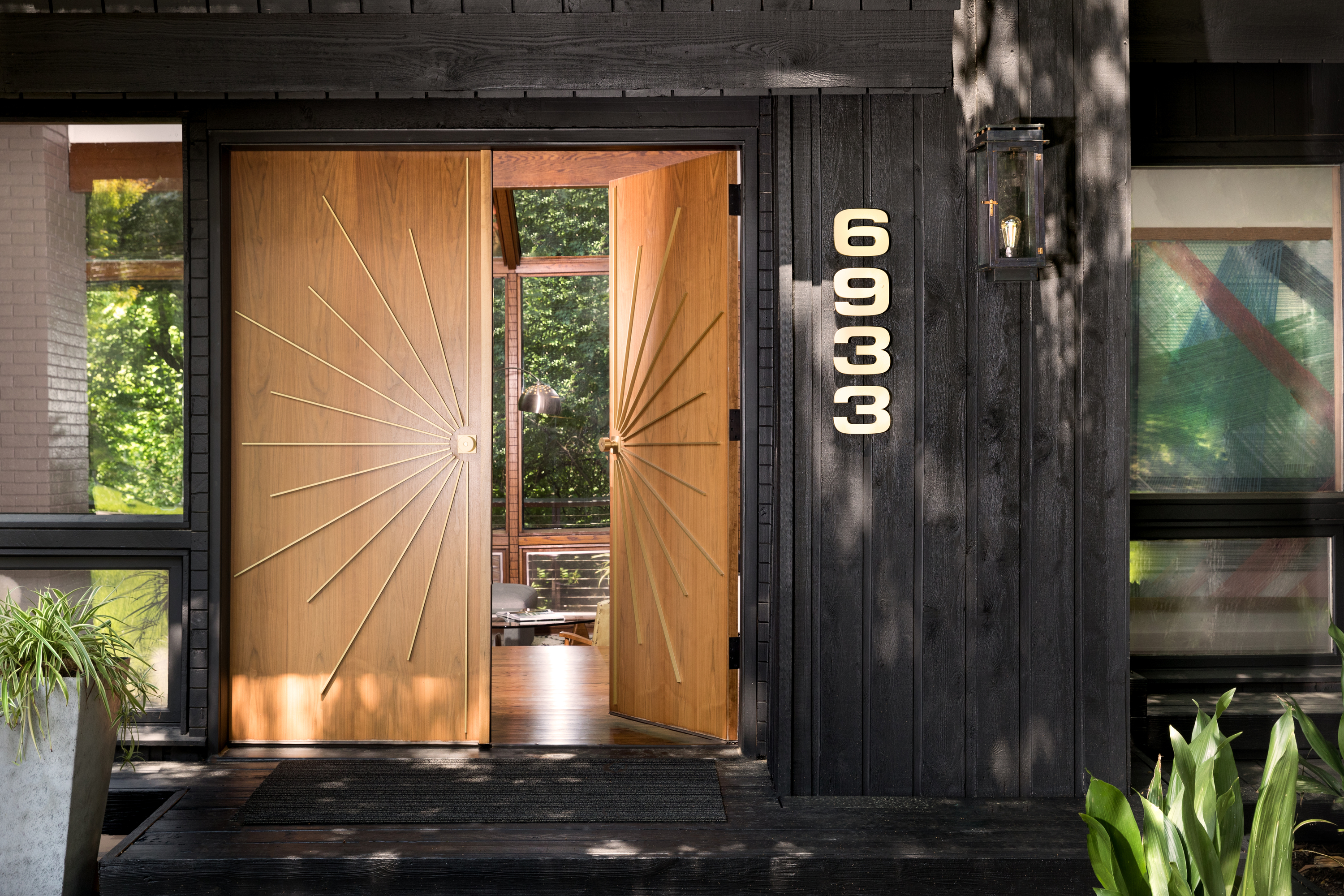
Your door furniture may also make or break the overall impression, and while you might not have thought much about your front door hardware, it's such a simple upgrade you can make to give your front door a brand new lease of life. Your fornt door handles and locks, letterboxes, door knocker and signs should match too - avoiding a mess of materials that looks too messy and keeping things neat and in unison.
The best front door hardware takes into consideration how it matches the color of your door. For example, cooler tones might balance nicely with a warm brass tone, while blackened brass can bring a contemporary look to your home.
When it comes to material, chrome, nickel and stainless steel do better outside, and brass has a luxurious, golden coloring that brings elegance as well as durability to your front door.
5. Flank your front door with some greenery
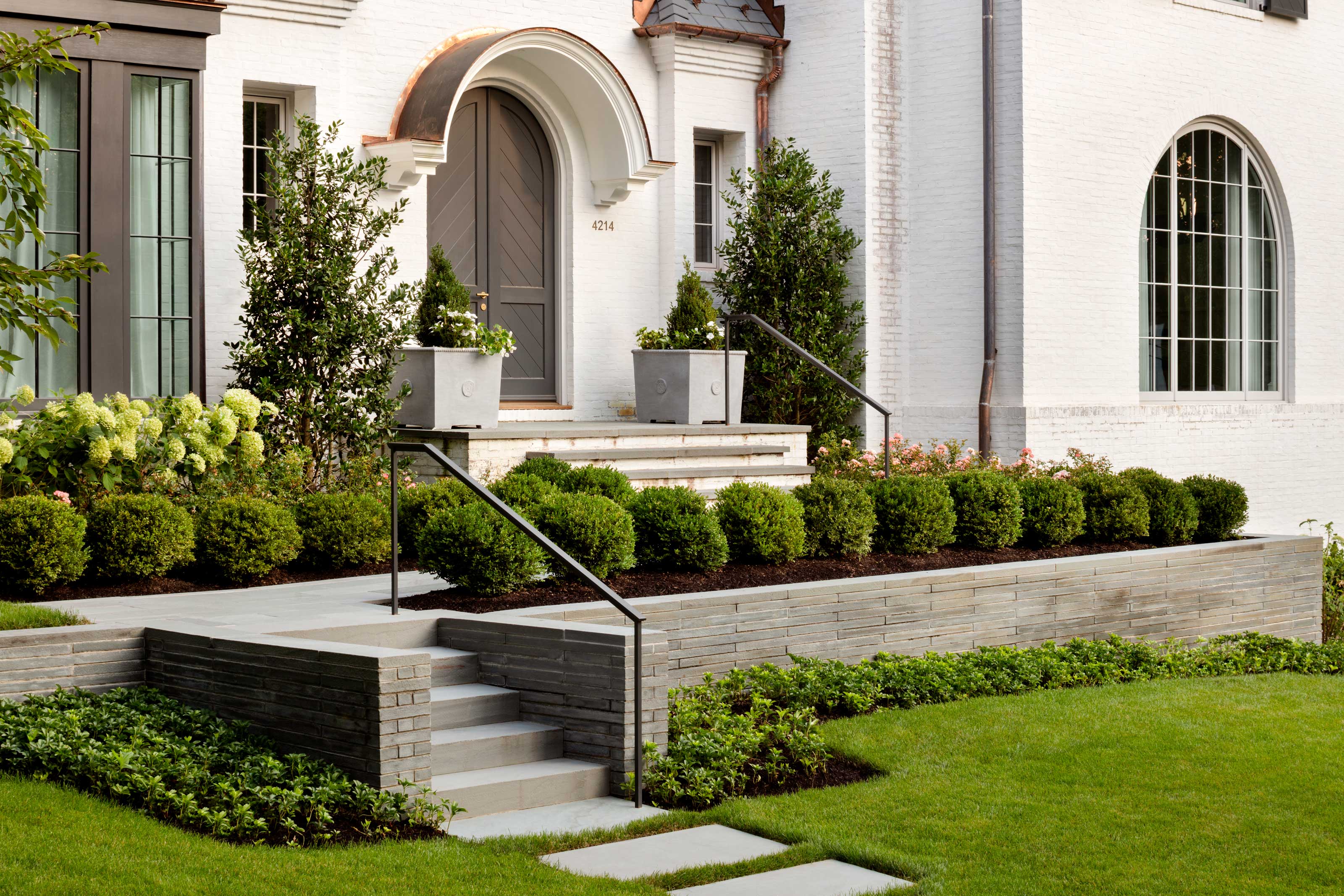
Last but not least, greenery is such a simple addition that can make all the difference. 'Things look best when there is sense of seamlessness between house and garden,' says Julie Farris, a Brooklyn-based landscape designer and founder of XS Space.
The best front door plants depend ultimately on personal preferences, but you can't go wrong with evergreen plants that will look full and lush all year round. Placed either side of your front door and the space will look neat and prim. Lavender is another firm favorite - easy to look after and bringing a wild haze of purple blue to your front door. For potted flowers that bring a bit of color, or hanging baskets, petunias, pansies or marigolds.
Think about your planters and pots as well as the plants. 'If the option is for above ground planting, investing in a quality planter that is proportional to the entry and complementary to the architecture so that even when the plants are not looking their best, the planter provides an aesthetic presence,' recommends Julie.
If in-ground planting is an option, thinking about framing the entry becomes more about providing a year-round structure, using low or mid sized evergreen shrubs that you can trim for a topiary look, or trees, and perennials or annuals as filler plants to provide a pop of color.







